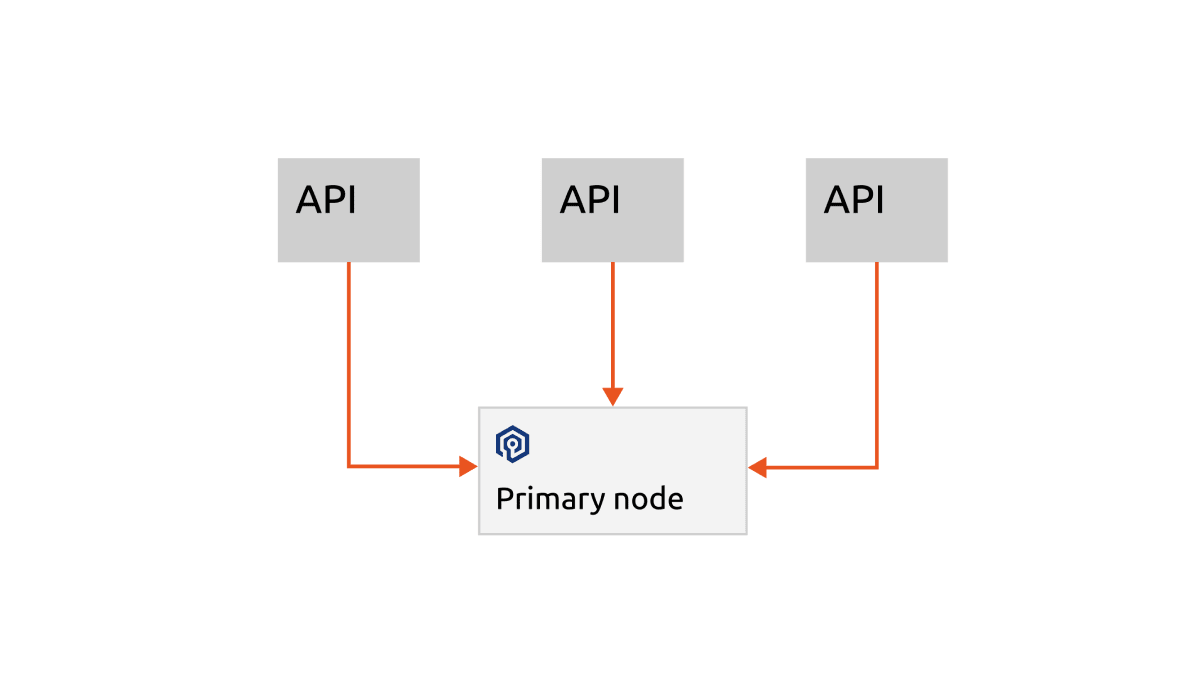
What is Valkey?
Valkey is an open source (BSD) high-performance key/value datastore that supports a variety of workloads such as caching, message queues, and leaderboards.
Valkey can run either as a standalone server or in a cluster, offering options for replication that ensure high availability and data redundancy.
Why choose Valkey?
-
Fully open source, in-memory data store
-
Versatile with extensions and plug-ins
-
High adoption rate since inception
Why do companies use Valkey?
Open source
- BSD 3-Clause license
- No hidden costs or vendor lock-ins
Single-threaded design
- Simple and predictable codebase
- Core data manipulation remains single-threaded, with multi-threading improvements in I/O operations
Experienced maintainers
- Backed by maintainers with deep Redis expertise
- Ensures continuity, stability, and long-term support
100% Redis compatibility
- A drop-in replacement of Redis OSS 7.2 on server configs, RESP, commands, persistence and clients
How companies use Valkey?
Modern web applications
Enterprises struggle with high traffic, the need for scalability, ensuring reliability, and real-time processing for modern web applications. Valkey is fast, scalable, and reliable database for an e-commerce website
Database caching
Improve query performance by caching frequently accessed data in Valkey, reducing the load on your primary database, and ensuring faster data retrieval
Session management
Valkey’s in-memory storage ensures fast and reliable access to user sessions, enhancing the responsiveness of your application, even under heavy load
Real-time analytics
Utilize Valkey for real-time data analytics, enabling your application to process and respond to live data streams, track user activity, or update dashboards with minimal latency
How does Valkey work?
Valkey is a versatile database that can be configured in various ways based on the needs of your application. Creating single Valkey instances can be beneficial depending on your specific requirements. For high availability and fault tolerance, a Valkey replication set up is recommended.
If your goal is to achieve horizontal scalability with sharding and automated failover, a Valkey Cluster may be a better fit.
A single Valkey instance in the figure below represents the simplest scenario. In this scenario, whilst running and configuring a Valkey instance is straightforward, it has limited host resources and is not highly available.

Replication, as shown in the figure below, ensures that any node can remain highly available even if another node goes down. This means that all data will still be accessible to clients since it is replicated across all nodes.

The Valkey Cluster shown in the below image offers scalability through data segmentation. This process divides the data into several parts, enhancing each node's performance by allowing it to store only a portion of the data and reducing the number of requests it needs to handle. A primary cluster can also have multiple replica nodes.

In Valkey 8.0, an enhanced multi-threaded architecture for executing I/O commands has been implemented. This new feature allows Valkey to handle 1.19 million requests per second, thanks to the introduction of new I/O threading. The improvements in I/O multithreading in Valkey 8.0 have increased throughput to levels comparable to those found in enterprise-grade Redis. Valkey now utilizes multi-core processing more efficiently and supports asynchronous I/O threading, achieving throughput that is more than three times greater than previous versions.
Feature breakdown
-
Data structure
Valkey supports multiple data types: strings, lists, maps, sets, sorted sets, hyperloglogs, bitmaps, streams, json, and geo-spatial indices.
-
Performance and high availability
Valkey can run either as a standalone server or in a cluster, offering options for replication that ensure high availability and data redundancy.
Remote direct memory access (RDMA) support allows computers to complete more efficient data transfers with low latency and high bandwidth by directly accessing each other’s memory.
Valkey can handle 1.19M requests per second with new I/O threading introduced in Valkey 8. It offers improved multi-core utilization and asynchronous I/O threading, which provides a level of throughput over three times greater than its previous version.
-
Client libraries, and architecture
Valkey supports different client libraries, including Java, node JS, python, C#, Go Lang. It also supports arm 64, x86:64 and s390x architecture in Ubuntu.
Choose the right database to fit your requirements*
| Features | MySQL | PostgreSQL | MongoDB | Valkey/Redis | OpenSearch | |
|---|---|---|---|---|---|---|
| Primary data paradigm | Relational | Object Relational | Document | Key/Value | Text Search | |
| Highest isolation level | Serialisable | Serialisable | Linearalisable | Linearalisable | Eventual read consistency | |
| Typical achievable response times in milliseconds | 1-100 | 1-100 | 1-100 | 0.1-10 | 10-1000 | |
| Max manageable data size in typical single clusters | 1-10 TB | 1-50 TB | 1-100 TBs | Available memory | 1-100 TBs | |
| DBMS managed sharding | With extension | With extension | Built-in | Built-in | Built-in | |
| DBMS managed partitioning | Yes | Yes | No | No | No | |
| Supported data types | Tabular | Yes | Yes | - | - | - |
| JSON | Yes | Yes | Yes | Yes | Yes | |
| XML | Yes | Yes | - | - | - | |
| Binary | Yes | Yes | Yes | Yes | Yes | |
| Generic Text | Yes | Yes | Yes | Yes | Yes | |
| Natural Language Text | Yes | Yes | Yes | With extension | Yes | |
| Time Series | - | With extension | Yes | - | Yes | |
| Geospatial data | Yes | With extension | Yes | Yes | Yes | |
| Graph data | - | With extension | - | - | - |
*Only the editions supported by Canonical are considered in the above table
Enterprise Valkey offered by Canonical
- We provide Valkey artifacts with security patching and support for any Linux distribution, as well as for containerized environments.
- Learn more about Valkey from Canonical ›
Valkey for Linux VMs
Included in Ubuntu Pro + Support
Valkey snap and deb:
- Our Valkey snap is an Isolated, Confined package and provides atomic updates on any Linux bistro
- Our Valkey deb is a supported debian package for Ubuntu machines
- Secure for up to 10 years
- Supported for up to 10 years
Valkey artifact
Valkey OCI-compliant container image
Included in Ubuntu Pro + Support
Our Valkey container is:
- OCI-compliant
- Optimized for small footprint
- Secure for up to 10 years
- Self-contained with all the dependencies needed to run an enterprise grade Valkey
Valkey in store
Valkey consultancy and support
Advanced professional services for Valkey when you need them
Unlock the potential of your data with Canonical’s advisory services. We can:
- Design and architect tailored solutions for your specific use cases
- Deliver a proof of concepts (PoC) to implement your ideas and de-risk your project
- Train your staff on Canonical's Valkey solutions
Access the datasheet ›
Learn more about Valkey

Valkey is an ideal database for running modern web applications because it supports various workloads such as caching and message queues and can act as a primary database.
“Valkey” and the Valkey logo are trademarks of LF Projects, LLC. Other trademarks are property of their respective owners



